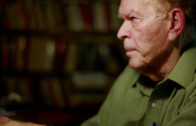Making Sense of the Sixties
Making Sense of the Sixties is a six part series analysing certain facets of the social and political upheaval in the United States during the 1960s and beyond. The series chronologically examines the cultural and political changes which shaped the era and left an indelible mark on later decades. From the assassinations of John F. Kennedy, Robert Kennedy and Martin Luther King; to the rapidly escalating atrocities in Vietnam; to the height of the Cold War and the Space Race, Making Sense of the Sixties weaves historical retrospect with the experiences of ordinary people to capture the mood and mindset of the era.
Series
Part one of this series establishes the political and social context of the 1960s in the United States by looking at the generation born just after the Second World War amongst the emergence of suburbia—the “Baby Boomers.” This generation seeds the pursuit of the “American Dream,” and is what contextualises the seeds of the 1960s rooted in the Depression, the Cold War, McCarthyism and American Apartheid.
Coming into the heady idealism of the 1960s, political and social conditions converge. College student enrolments soared, social and political activism was brooding on both the left and the right, and the civil rights movement established a peak of influence, involvement and momentum.
The youth rebellion—one of the quirkiest and most penetrating movements in American history—is the focus of this episode, tracing its evolution from the innocent days of “Beatle mop-tops,” to the hippie epicentre of “The Haight.”
Part four shows some of the increasing polarisation of the Vietnam War’s supporters and opponents, as well as the mounting racial tension that sparked nationwide riots. This leads to the violent year of 1968 as political protest begins to fuse with social ferment.
Despite the ongoing atrocities in Vietnam at the behest of the United States military, and the continuing violence and absurdities of the war by 1969, there was a strong social sense of something ending for which the seeds of the seventies were planted: the Women’s movement; the Silent Majority; and, the citizens action movement.
The final programme looks at the effect of the sixties on many of the people seen in previous episodes and reflects on some of the legacies of the entire era.




